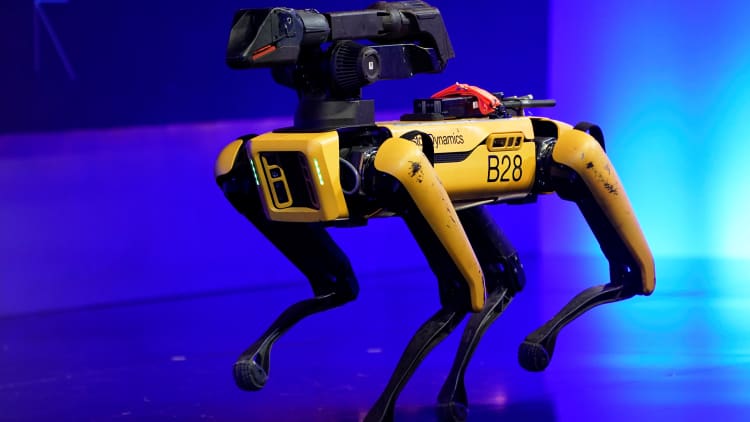
Boston Dynamics' dog-like robot, Spot, is being used in a park in Singapore to help encourage social distancing during the coronavirus pandemic.
The robot can operate itself, but that's not how it's being used in Singapore, Boston Dynamics founder Marc Raibert said Friday on CNBC's "Squawk Box."
"The robot isn't really enforcing in Singapore. It's just giving people information and encouraging them," he said. "There's a human nearby who can do whatever enforcement they decide is appropriate."
About 120 of the four-legged robots are being used in the world, with a variety of purposes, Raibert said. He said they will soon will be available for purchase on the company's website. Currently, each sale is negotiated individually.
Spot is being used in other ways during the public health crisis beyond just patrolling a park in Singapore, Raibert said. At Brigham and Women's Hospital in Boston, the robot is helping to screen patients for Covid-19.
"Originally, we were just talking to them without there having to be a health worker there. Now we're making vital measurements like respiration rate, body temperature," he said. "We're working on oxygenation and heart rate, all that can be done without contact, even with a robot."
Raibert said Boston Dynamics, which Google-parent Alphabet sold to SoftBank in 2017, also is thinking about ways to use Spot to disinfect certain places because of the need for increased sanitation due to Covid-19.
"Everybody wants their train station and other facilities to be disinfected so that when you go in, you know you're safe," he said. "And in those kinds of situations, the robots can autonomously do all the operations because there aren't people there to interact with."
"We've had a flood of input [from] people who have ideas for how they could keep their workers from having to have contact even with other people or with situations," he added. "I think it's going to be a very interesting time where some of these new applications play out."


